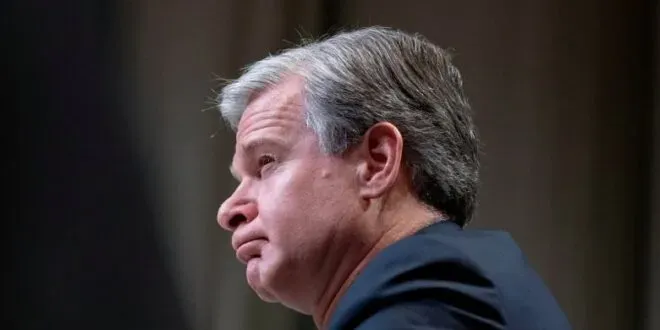The Indian intelligence plot has emerged as a critical issue, raising alarms about the extent of foreign interference in North America. At the center of this controversy is Nikhil Gupta, who faces serious murder-for-hire charges related to an alleged conspiracy to assassinate prominent Sikh lawyer associated with the Khalistan movement in Canada. These allegations not only spotlight the tension between the Indian government and Sikh activists abroad but also link to the tragic assassination of Hardeep Singh Nijjar, a vocal separatist advocate. The implications of this plot extend beyond individual cases, suggesting a broader strategy by Indian intelligence to silence dissent within Sikh communities in Canada and the U.S. As the Nikhil Gupta case unfolds, it reveals urgent questions about safety, national security, and the rights of expatriates who dare to speak out against their home government.
This alleged clandestine operation involving Indian state actors has significant repercussions for the Sikh diaspora, particularly in Canada and the United States. Reports suggest that the plot was partly motivated by the actions of separatist leaders advocating for Khalistan, a movement seeking to establish a sovereign state for Sikhs. As investigations into the Nikhil Gupta case progress, they continue to unveil troubling connections to broader geopolitical strategies aimed at stifling dissent among Sikh communities. Following the shocking assassination allegations surrounding figures like Hardeep Singh Nijjar, the urgency of evaluating the safety of Sikh activists becomes increasingly apparent. Understanding this situation requires a nuanced exploration of international relations, human rights, and the contemporary reality faced by those involved in advocacy for minority rights.
The Rise of Khalistan Movement in Canada
The Khalistan movement has gained significant traction among Sikh communities in Canada, where many individuals advocate for a separate Sikh homeland in India. This movement, which began gaining momentum in the 1980s, has recently seen a resurgence as various factions within the diaspora express dissatisfaction with both the Indian government and the perceived treatment of Sikhs in Punjab. In this context, Canadian Sikhs have become increasingly vocal, leading to tensions that have caught the attention of both local authorities and international intelligence agencies.
Recent events, including the assassination of prominent Sikh separatist Hardeep Singh Nijjar, have raised concerns regarding the safety of activists. This has further fueled the Khalistan movement as supporters rally against what they perceive as attempts by the Indian state to undermine their rights abroad. The growing advocacy for Khalistan among the Sikh diaspora reflects deep-seated grievances and a desire for representation and autonomy, making it a pivotal issue in Canadian politics.
Allegations of Indian Intelligence Involvement
The allegations surrounding the role of Indian intelligence in plots against Sikh leaders in Canada have sent shockwaves throughout both countries. These accusations stem from the investigation into the murder-for-hire case against Nikhil Gupta, who is believed to have operated under the influence of foreign operatives. This raises alarming questions about the extent to which state-sponsored actions are being employed against political dissidents residing outside their nation’s borders.
This situation reflects a broader pattern wherein countries like India may resort to extraterritorial measures to deal with perceived threats, particularly from separatist movements such as Khalistan. As Canadian law enforcement investigates these claims, it’s imperative to scrutinize the ramifications for the Sikh community, who may now feel increasingly vulnerable amid allegations linking their struggles to international espionage and targeted violence.
Nikhil Gupta’s Murder-for-Hire Charges
Nikhil Gupta’s case exemplifies the complex interplay between diaspora politics and international relations. Accused of orchestrating a murder-for-hire plot aimed at an outspoken Sikh lawyer, Gupta’s arrest marks a pivotal moment that encapsulates ongoing tensions related to the Khalistan movement. His alleged connection to Indian intelligence suggests that state mechanisms may be actively targeting dissidents abroad, further complicating the legal and political landscapes for Sikh activists in Canada.
As the people of Canada grapple with the implications of these allegations, significant attention is drawn to the conduct of foreign intelligence. The Nikhil Gupta case not only raises legal questions but also provokes discussions around national security and the extent of external influence on domestic affairs. The stakes are particularly high for Sikh communities in Canada, as they face heightened scrutiny and potential backlash from their advocacy for Khalistan amidst these unfolding events.
International Reactions to Assassination Allegations
International reactions to the assassination allegations involving Indian intelligence and Sikh activists have been mixed, reflecting the complex geopolitics of this issue. Some nations have voiced concern over the potential implications for human rights and the safety of minority communities abroad. There’s a palpable fear that if such intelligence strategies are prevalent, they might embolden similar actions against other dissident movements across the globe.
Furthermore, these allegations bring to light the responsibilities of governments to protect their citizens from foreign government actions. Activists and human rights organizations have urged for a more decisive stance from Canadian authorities, calling for investigations into the threats faced by Sikh leaders. The global community watches closely, as these events could set precedents for how countries address foreign interference moving forward.
Sikh Activism and Security in Canada
The current climate surrounding Sikh activism in Canada is deeply influenced by fears of targeted violence and extraterritorial threats. Canadian Sikh groups are increasingly vocal about their right to organize and advocate for their beliefs without fear of retribution. Following the murder of Hardeep Singh Nijjar and the subsequent Nikhil Gupta case, there is a heightened need for conversations around security for Sikh activists across the nation.
Furthermore, these events have catalyzed a stronger sense of community among Sikhs in Canada, as they rally to support one another during these precarious times. Initiatives focusing on legal protection, safety awareness, and their collective rights are becoming increasingly essential. Sikh organizations are now more empowered to seek alliances with human rights activists globally, amplifying their cause in the face of threat and intimidation.
The Impact of the Nikhil Gupta Case on Indo-Canadian Relations
The Nikhil Gupta case has potential implications for Indo-Canadian relations, as it brings to the forefront sensitive discussions on terrorism, state-sponsored violence, and diaspora concerns. The allegations against Gupta, if proven, could strain diplomatic ties between India and Canada, complicating both nations’ ability to navigate issues of mutual concern, including trade, security collaboration, and the overarching fight against terrorism.
As both countries grapple with these allegations, it’s important for leaders to engage in dialogue to prevent further deterioration of relations. The Canadian government is tasked with the delicate responsibility of addressing the safety of its citizens while also maintaining a diplomatic balance with India, a significant global player. The outcomes of this case could set the stage for future interactions, making it a crucial moment in both domestic and international politics.
Khalistani Sentiments and Political Advocacy
Khalistani sentiments among the Sikh diaspora have found political advocacy channels in Canada, highlighting the intersection of identity, culture, and international politics. Many Sikhs view their fight for a separate state as an essential aspect of their cultural heritage and a legitimate political aspiration. Advocacy efforts have seen increased mobilization among younger generations, who are more inclined to use social media platforms to voice their demands for justice and recognition.
The rise of Khalistani advocacy not only serves to reinforce identity but may also prompt Canadian policymakers to take these aspirations seriously. Political parties have begun to recognize that catering to the needs of the Sikh community can have electoral repercussions, thus integrating these discussions into broader conversations about multiculturalism and inclusion in Canada.
Understanding Sikh Discontent with Indian Policies
Understanding Sikh discontent towards Indian policies requires a nuanced examination of historical grievances and current events. Policies viewed as discriminatory or oppressive have fueled feelings of alienation among Sikhs, particularly in Punjab where issues such as state violence and economic disparity persist. This historical context is critical in analyzing the current dynamics surrounding the Khalistan movement and the broader Sikh struggle in Canada.
Moreover, as Sikhs in Canada continue to advocate for their rights, their discontent has prompted a reevaluation of how ethnic minorities navigate their identities in foreign contexts. This underscores the importance of listening to diaspora voices and addressing their concerns within the framework of Canadian multiculturalism. Such an approach can facilitate better integration and provide a platform for dialogue, crucial for fostering harmonious relations among diverse communities.
The Future of Sikh Activism and Its Implications
The future of Sikh activism in Canada will hinge on the outcomes of current investigations and the response from both governmental and civil society sectors. As cases like that of Nikhil Gupta unfold, members of the Sikh community will likely continue to mobilize, advocating for greater protections, awareness, and dialogue about their issues. Activism may evolve into broader coalitions that address not only Sikh rights but also human rights on a larger scale.
In light of these unfolding events, the Sikh community in Canada faces both challenges and opportunities. The potential for increased scrutiny means activists must strategize effectively to ensure their safety while promoting their cause. Moreover, greater engagement with allies, including other ethnic and minority groups, will be crucial in creating a united front that can amplify their collective voices in a global context.
Frequently Asked Questions
What is the Indian intelligence plot related to Sikhs in Canada?
The Indian intelligence plot refers to alleged activities orchestrated by Indian state actors aimed at silencing Sikh separatists in Canada, particularly linked to the Khalistan movement. This plot has been spotlighted by the murder-for-hire charges against Nikhil Gupta, who is accused of being involved in the conspiracy to assassinate a Canadian lawyer advocating for Khalistani rights.
How does the Nikhil Gupta case relate to Indian intelligence operations?
The Nikhil Gupta case highlights the alleged role of Indian intelligence in executing plans against Sikh activists in Canada. Gupta faces charges that suggest a broader conspiracy to intimidate or eliminate voices supporting the Khalistan movement, which has drawn criticism from Canadian authorities regarding foreign interference.
Who was Hardeep Singh Nijjar, and what was his connection to the Indian intelligence plot?
Hardeep Singh Nijjar was a prominent Canadian Sikh activist advocating for Khalistani independence. His assassination, which occurred while the alleged plot involving Nikhil Gupta was unfolding, raises serious concerns about the extent to which Indian intelligence may be involved in targeting Sikhs abroad, exacerbating tensions within diaspora communities.
What are the implications of the Indian intelligence plot for Sikh communities in Canada and the U.S.?
The Indian intelligence plot’s implications are significant for Sikh communities in Canada and the U.S., as it raises fears of targeted violence and foreign interference. The allegations suggest that prominent Sikh activists could be at risk, which may lead to heightened security measures and increased scrutiny of Indian government actions by Western nations.
What are the broader geopolitical ramifications of the Indian intelligence plot against Sikhs?
The broader geopolitical ramifications of the Indian intelligence plot against Sikhs involve strained diplomatic relations between Canada and India. Such intelligence operations could provoke backlash against India in Western countries, highlighting the importance of protecting diaspora rights and human rights on an international platform, especially concerning the Khalistan movement.
How are Canadian authorities responding to the allegations of Indian intelligence involvement in the assassination plot?
Canadian authorities have expressed deep concern regarding the allegations of Indian intelligence involvement in the assassination plot targeting Sikhs. This has led to calls for thorough investigations and discussions about the protection of ethnic communities, emphasizing the need for Canada to safeguard its citizens against foreign threats, particularly related to the Khalistan movement.
What does the term ‘Khalistan movement’ signify in relation to Indian intelligence plots?
The Khalistan movement is a political campaign advocating for an independent Sikh state in Punjab, India. The Indian intelligence plots allegedly targeting Sikh activists, including events related to Nikhil Gupta and Hardeep Singh Nijjar, indicate a concerted effort by Indian authorities to undermine this movement and suppress pro-Khalistan sentiments abroad.
Why is the Nikhil Gupta case significant for understanding the Indian intelligence plot?
The Nikhil Gupta case is significant as it directly links a suspect to alleged Indian intelligence operations aimed at harming Sikh activists in Canada. It underscores the potential for serious criminal activities motivated by political agendas and illuminates the challenges faced by Sikh communities in seeking justice and safety from foreign interferences.
| Key Point | Details |
|---|---|
| Allegations | Involvement of Indian intelligence in a plot against Sikhs in Canada and the U.S. |
| Key Figure | Nikhil Gupta, who faces murder-for-hire charges. |
| Target | A Canadian lawyer and Khalistan separatist. |
| Recent Events | The murder plot was associated with the assassination of Hardeep Singh Nijjar. |
| Tensions | Rising tensions between Canadian Sikh communities and Indian state actors. |
| Geopolitical Ramifications | Concerns regarding Sikh activists’ safety in Western nations. |
Summary
The Indian intelligence plot to kill Sikhs in Canada and the U.S. highlights serious geopolitical tensions and concerns surrounding the safety of Sikh activists abroad. The alleged involvement of Indian intelligence in orchestrating such plots raises critical questions about international human rights and the implications for bilateral relations. As investigations unfold, the focus will remain on the repercussions for Sikh communities and the integrity of legal systems in Western jurisdictions.



